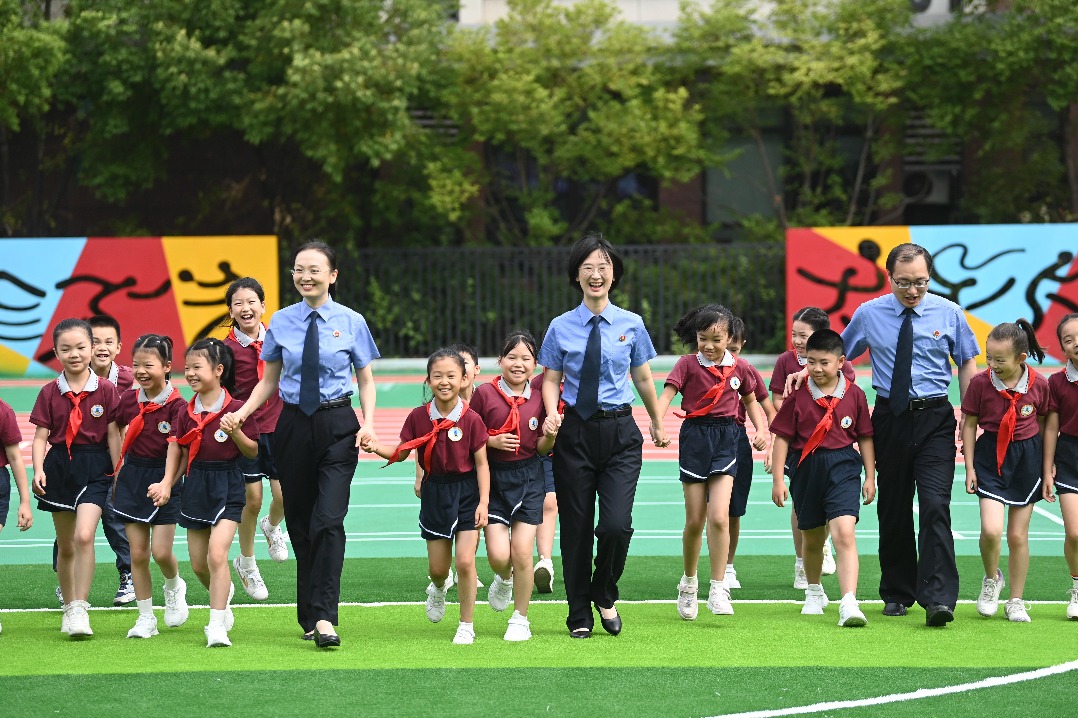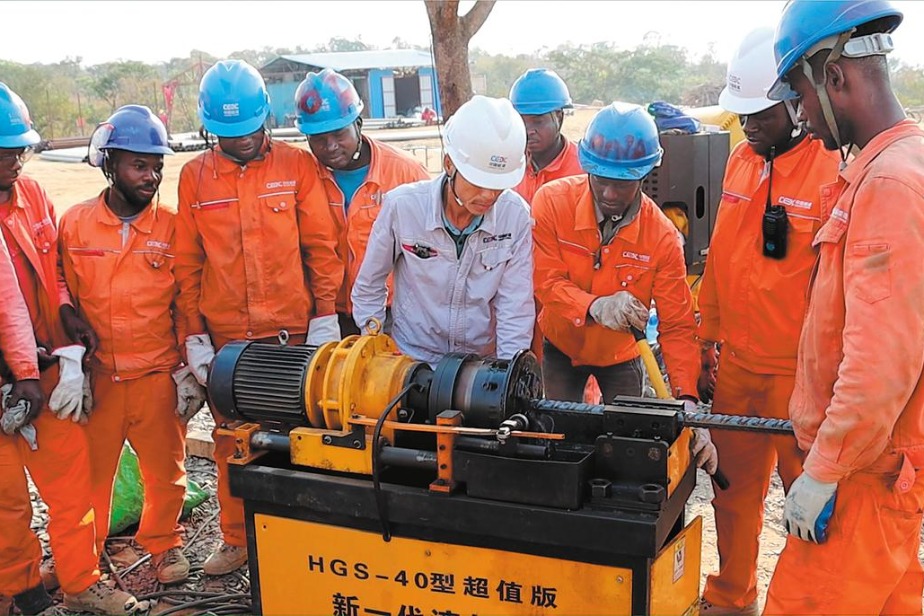Job-hoppers show interest in AI
Survey finds industry leads, with 57.2% willing to take up positions in sector

The artificial intelligence industry has a strong pull on job-hoppers, with more than half of all workers considering a job change expressing a strong willingness to switch to AI-related positions, according to a recent report on job-hopping.
The report, released on March 24 by Zhaopin, one of China's leading online recruitment platforms, surveyed 37,980 workers who use the platform about their job-changing intentions, career confidence and professional development.
The AI industry emerged as the most attractive among emerging industries, with 49.2 percent of potential job-hoppers hoping to transition into the field, followed by new energy (41.7 percent), high-end manufacturing (36.3 percent), residential services (24 percent) and cross-border e-commerce (14.8 percent).
A total of 57.2 percent of workers expressed a willingness to move into an AI-related role such as AI engineering, citing better career prospects, higher salaries and a greater sense of achievement from taking on challenges.
Job seekers are already flooding the AI industry. According to data from Zhaopin, the number of people searching for AI-related jobs in February increased by more than 200 percent year-on-year.
The widespread adoption of AI in the workplace has led many workers to prioritize AI-related skills.
A total of 45.4 percent of employees now consider proficiency in AI tools a necessary office skill, while 12.3 percent are thinking about switching jobs because their current employers do not provide AI training.
Meanwhile, demand for AI talent in the job market is also rising.
According to a McKinsey & Company report, by 2030, China's demand for AI professionals is expected to reach 6 million, with a potential talent gap of up to 4 million.
"The prevalence of DeepSeek has accelerated the penetration of AI technologies across industries. As demand for AI talent surges, companies are increasing recruitment salaries," Li Qiang, executive vice-president of Zhaopin, told Xinhua News Agency.
Data from Zhaopin shows that in February, job openings for algorithm engineers rose 46.8 percent, machine learning specialists 40.1 percent and deep learning professionals 5.1 percent, all year-on-year increases. The average monthly salaries for these positions also increased during the same period, with algorithm engineers earning 23,510 yuan ($3,237), machine learning specialists 21,534 yuan and deep learning professionals 24,015 yuan.
The number of AI lecturer positions surged 112.4 percent in the month after Spring Festival, with an average monthly salary of 15,792 yuan, highlighting growing demand for AI education and talent development professionals.
Despite rising interest, the gap between market demand and AI talent cultivation persists. According to a recent AI talent report published by Liepin, another Chinese career development platform, about 47 percent of AI job postings from February last year to January this year required a master's or doctoral degree.
However, the supply of AI job seekers with advanced degrees remains insufficient, as AI was officially established as an undergraduate major in China only in 2019.Currently, most AI professionals come from backgrounds in computer science, software engineering, electronic information or mechanical engineering.
In response, many Chinese universities have revamped their academic offerings, with more than 500 higher education institutions introducing AI majors or establishing specialized AI colleges. This month, top universities such as Tsinghua University and Shanghai Jiao Tong University announced plans to expand undergraduate admissions, with a significant portion of new spots reserved for interdisciplinary talents combining AI with other disciplines.
Wang Liang, a researcher at the Institute of Automation at the Chinese Academy of Sciences, told Xinhua News Agency that the multidisciplinary nature of AI calls for different types of talent: those focused on fundamental theoretical research and algorithm development, those creating practical AI products and those applying AI technology across industries.
"In the future, the demand for AI talent will become more specialized across different levels and fields," Wang said. "Universities should focus on differentiated AI talent cultivation when designing their programs and courses."
xunuo@chinadaily.com.cn
- Police called in after investigation into food safety incident at Shanghai schools
- Shanghai Sports Festival sparks citywide fitness fun
- Intl conference shows new pathways to integrate education, research and application
- China's cyberspace regulator penalizes Toutiao for presenting 'harmful information'
- Shanghai's first intl snow sculpture expo transforms resort into winter wonderland
- China-built jet C919 carries out over 2 million passenger trips





































